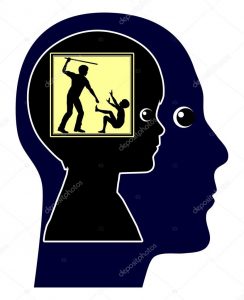3 Causes That Make People Manipulative
Be on the lookout for these.
Psychological manipulation can be defined as the utilization of undue power (social, relational, familial, sexual, financial, professional, etc.) for the purpose of benefiting the manipulator at the expense of their victims.
 Willful psychological manipulation is different than healthy social influence, where there’s generally equitable exchange between individuals. In a psychologically manipulative relationship, one person is exploiting another for the purpose of selfish and unscrupulous gain.
Willful psychological manipulation is different than healthy social influence, where there’s generally equitable exchange between individuals. In a psychologically manipulative relationship, one person is exploiting another for the purpose of selfish and unscrupulous gain.
Categories of manipulativeness include negative manipulation (i.e. persistent criticism, shaming, social exclusion, social pressure, hostile threats, etc.); positive manipulation (i.e. fake friendliness, insincere flattery, appeal to vanity, false promises, etc.); deception and intrigue (i.e. lying, cheating, stealing, unethical shortcuts, excuse making, blaming, dodging responsibility, etc.); strategic helplessness (i.e. playing weak, playing martyr, guilt-baiting, etc.); and hostility and abuse (i.e. bullying, temper tantrum, intimidation, physical/mental/emotional abuse, etc.).
Why do manipulators manipulate? Chronic manipulation is often used as a survival mechanism in order to cope with a challenging or competitive environment, especially where one lacks relative power and control. Pathological manipulation may also be the result of family, social, societal, or professional conditioning.
With this in mind, consider the following three possible causes, with references from my books How to Successfully Handle Manipulative People and A Practical Guide for Manipulators to Change Towards the Higher Self.
A. Family history. Was the individual in question influenced by certain manipulative family members in his or her life? In the family dynamic, was there struggle for economic or social survival? Was there competition for power, control, love and affection, relational standing and acceptance, status and privilege, monetary and material resources, or other types of real or perceived “advantage?” Were there power struggles, either between family members or against “outsiders”, for greater leverage, influence, profit, or reward?
B. Did the individual experience any social weaknesses and/or disadvantages during her or his formative years? Did she experience “exclusion” in any way (socially, economically, culturally, professionally, etc.), and wanted to become part of the “accepted norm?”
C. Were there any social, professional, or societal norms which encouraged cunning, scheming, bargaining, haggling, exploiting human weaknesses, devising Machiavellian ruthlessness, or other forms of indirect influence and power? For example, some professions lend themselves much more to persuading people than others. Some societies normalize competitive bargaining in business and social interactions while others do not. Certain affiliated groups have a stated purpose of convincing others to see things from their own vantage point. If an individual was strongly exposed to any of these influences, he or she may have internalized certain manipulative tactics into behavioral norms.
Per proseguire la lettura ed andare all’articolo completo:


Leave a Comment
(0 Commenti)